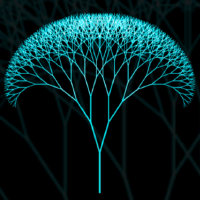title: ai4lam Metadata/Discovery WG Monthly Meeting
September 13, 2022#
9 AM California | 12 PM Washington DC | 5 PM UK | 6 PM Oslo & Paris
Attending
Jeremy Nelson (Stanford)
David Lowe (TAMU)
Mary Aycock (Texas State University)
Erik Radio (CU Boulder)
Elizabeth McCormick (University of Reading)
Susan Vandale
Amy James (Baylor)
Joshua Been (Baylor)
#
Helpful Links
Project Documents and Data#
Agenda Topics#
Updates, announcements, intros
Presentation by Baylor’s Amy James and Joshua Been on their information literacy syllabi miner tool
Curriculum Mapping - goals for the project. Curriculum mapping is a technique that visually represents curricular data, such as learning outcomes, level of instruction and library instruction statistics (leMire & Graves)
Curriculum mapping automate the project, find gaps in information literary education. Work with liaisons to enhance departments, start with Library Basics. Work with Beth in Museum studies.
Not evaluating or critique instruction, providing an array of support. Info literacy terms and concept, each term associated with with tiered approach. Research Basics and Disciplines, Research Disciplines, and LIbrary Basics.
Mine syllabi descriptions for info literacy terms and concepts with Python script.
Can use tool to mine assignments and different terms for a variety of purposes; Syllabi Info Lit Miner. Can select Syllabi Source, overview of different disciplines.
Broke out different Art and Science Core distribution list. Can see what have had library instruction or not at all, and last time library instruction was provide.
Data table, course prefix, number, instcutore
Research verbs
Evaluate
Research
Identify
Gather
Analyze
Examine
Synthesize
Explore
Apply
Research nous 10. Library 11. Collection 12. Data 13. Project 14. Paper 15. Source 16. Archive 17. Theory 18. Component
Verbs must be within 10 words of the nouns
SILM Workflow 19. Obtain Syllabi 20. Syllabi to match naming scheme 21. Run through Google Collab tool 22. Excel output in Sharepoint 23. Power Query Editor (Power BI) 24. Model Viewer (Power Bi) 25. Create Front-End Visuals 26. Publish, Update Daily (Midnight)
Challenge in getting Instructors to share Syllabi, not shared publicly
Two code blocks in Collab, set configuration, run second block to get results 27. Sources of the syllabi, browse upload button doc, as well as zip files 28. Action verbs and noun proximity, proximity distance can be adjusted 29. Truncates verbs and nouns 30. Type of IL learning (library basics, research basics, research disciplines) 31. Identify Additional Terms, look at adding additional concepts beyond IL, loaded Makerspace and data terms. Can enable more sophisticated learning 32. Use texract for extracting text from .doc, pdfs, docx
Process 33. Convert to Syllabi to Text 34. Identify terms 35. Handle text with no terms 36. Export to Excel 37. Identify IL tiers 38. Levels of IL by Each Syllabus 39. Levels of IL by verbs Each Syllabus 40. Excel files feed to Power BI
Available through harvesting Syllabi URL via OAI-PMH? Yes
Accuracy? Working with the liaisons, liaison developed IL assignments for course, go through and look at false positives.
Everyone so far has been pretty receptive, mindful that working with faculty not evaluation but as a help use self-created tools. Overall positive.
Syllabus structure? If there were standards at the University or even by department would make it easier beside required info on the back of syllabus, naming scheme in the syllabi match the scheme of the professors and course names in the syllabus.
Further granularity, data management IL session, find syllabi? Terms in the list, secondary terms that are built into tool. Looking at building out more niche areas.
Use additional sources like rate-my-professor? No, challenge to get professors to agree to allow their syllabi. Mine new course proposals, as soon as new course are approved, mine to see if the collections need for these courses.
Nice and outward facing, into the IL arena. Great potential for mining “stuff” connect to need to the what the library can do in IL context.
